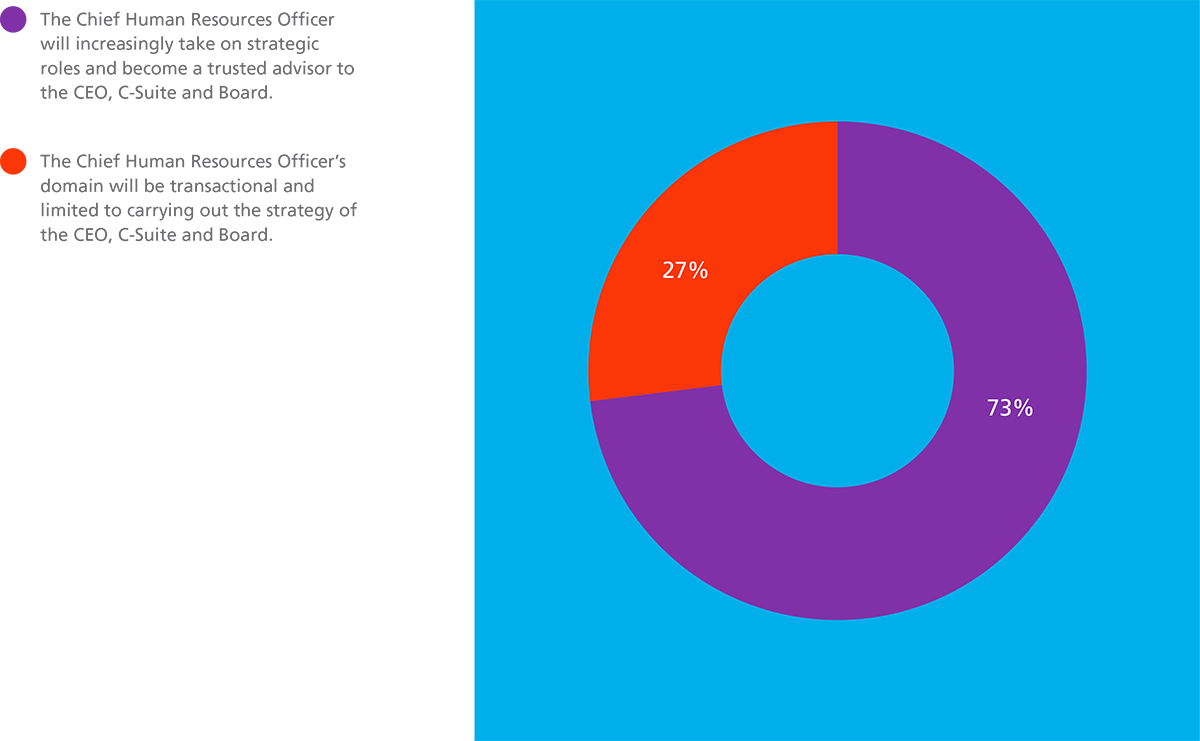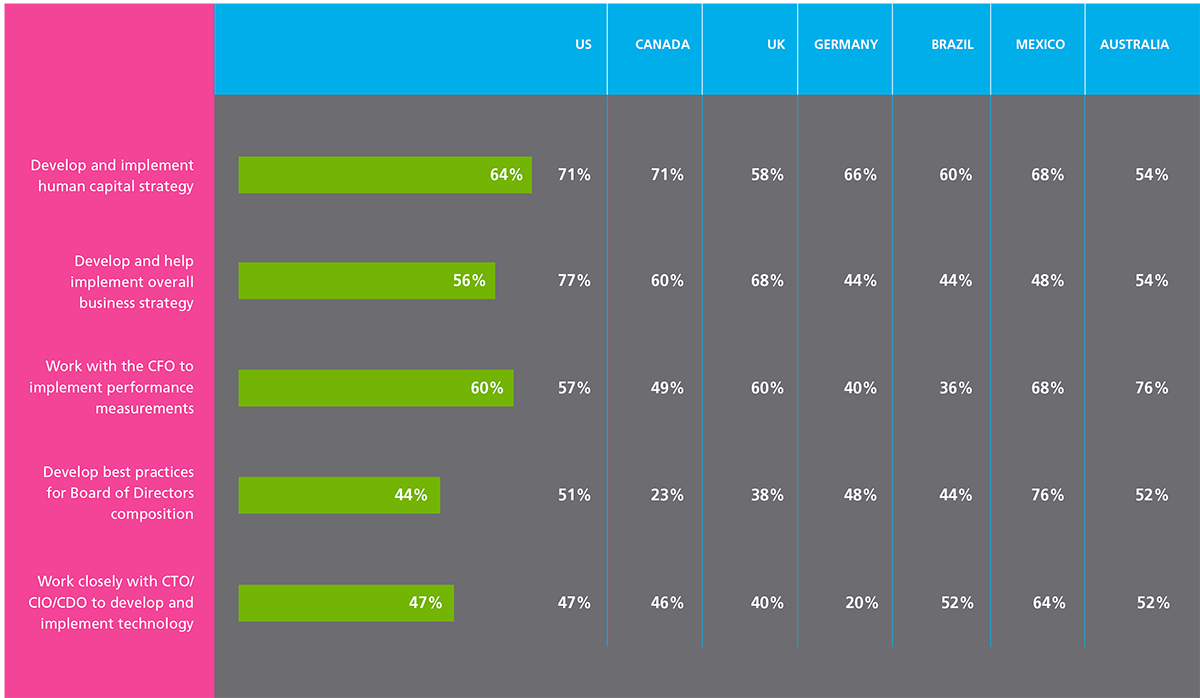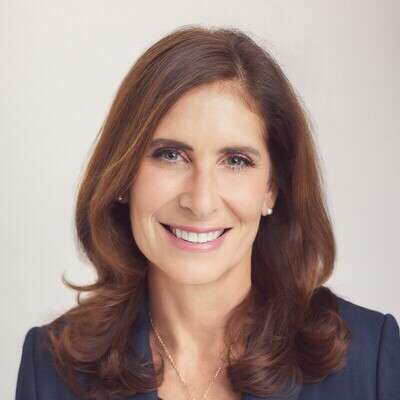HR executives and other experts share their views on how the role of Chief Human Resources Officer is taking on greater influence within the C-suite and board.
“In the world of high-speed, disruptive technological changes, people will continue to play a key role when it comes to transforming new tech into real results and achievements.”
Jeff Hodge
Managing Partner
Boyden United States
Shifting Functions
The CHRO’s shift to a more strategic role will, according to HR decision makers, alter the function of the position. In addition to typical HR functions, most HR decision makers believe the CHRO should be prepared to develop and implement human capital strategy (64%) in the next five to 10 years.
The emphasis on strategy, according to Carolyn Isaacs, former Global Transition Director and Global HR Services Director, Diageo, is due to HR’s role in talent management. “HR brings the people and talent perspective to the strategic decision-making process because, be it a commercial decision or a broader organizational decision, there’s always going to be a people aspect,” Isaacs explains.
How will the role of the Chief Human Resources Officer evolve over the next 5-10 years?

“HR is not just handling payroll, benefits and transactional communications with employees. Rather, it’s shifting to look at the entire employee experience from the birth of a career to the very end. In that way, the CHRO has truly become a part of the C-suite."
Carolyn Hudson
Managing Director and Head of Americas, People & Change Practice, FTI Consulting
Some believe the role of CHRO will extend to include other functions, but opinions differ on a regional basis. Overall, 60% of HR executives believe the CHRO should be working with the CFO to implement performance measurements. The CHRO’s role in performance measurement is most popular among North American HR decision makers (72%) compared to 56% in the European Union and 46% in Latin America.
“HR executives and decision makers recognize that the human resources sector is undergoing significant change. A key part of this change is the evolution of the role of CHRO. That change is here to stay.”
— Francesca d’Arcangeli, Global Leader, Industrial Practice and Managing Partner, Boyden United Kingdom
There was less consensus surrounding the CHRO’s role in implementing overall business strategy. Overall, 56% believe the CHRO should be involved in this process. However, dramatic regional discrepancies are present between Australia (75%) and Brazil (only 36%).
“The last few years have seen a larger number of HR leaders taking on wider portfolios, in addition to HR. The importance of a diversity of skills is growing, especially around brand and customer experience. The CHRO role will change into a wider remit, needing HR leaders to have strong business, transformation and technology knowledge.”
— Michael Semark, Partner, Boyden Australia
Those at larger companies (56%) were more likely to think the CHRO should be working closely with the Chief Technology Officer, Chief Information Officer or Chief Data officer to develop and implement technology than those at smaller companies (33%).
In addition to typical human resources functions, such as benefits and compensation,
what should the Chief Human Resources Officer be prepared to do in the next 5-10 years?





